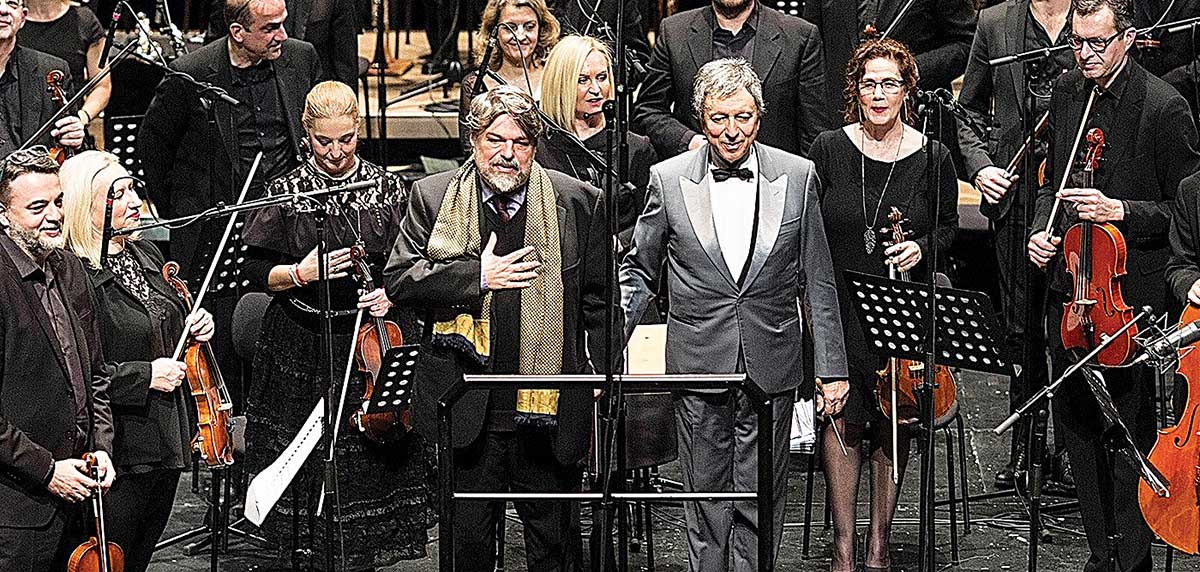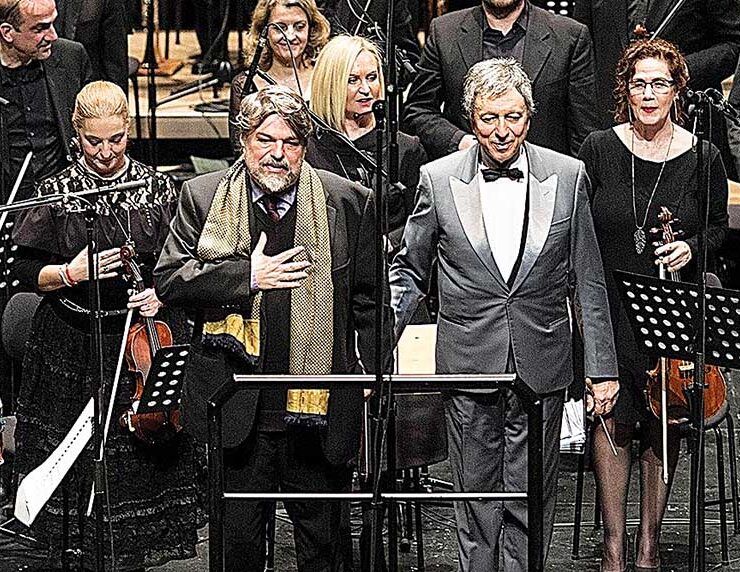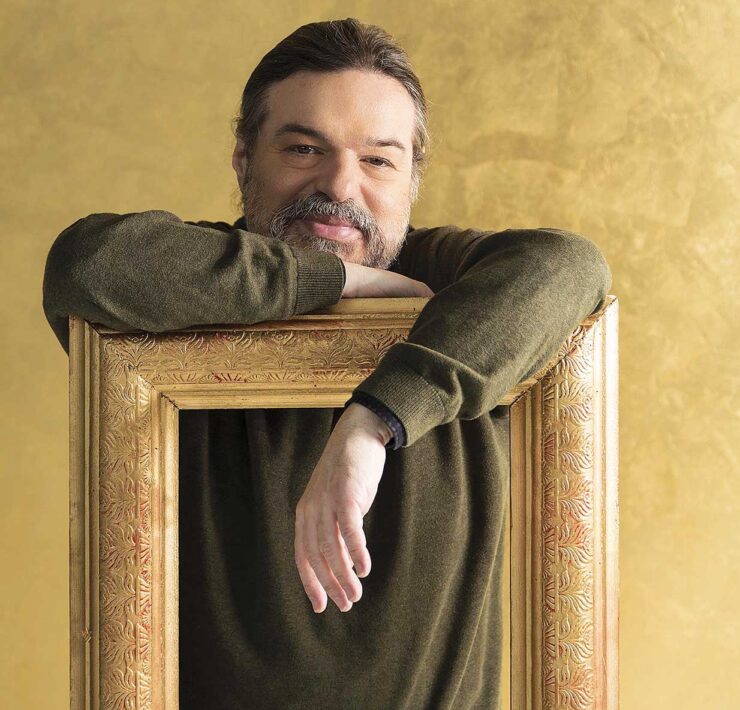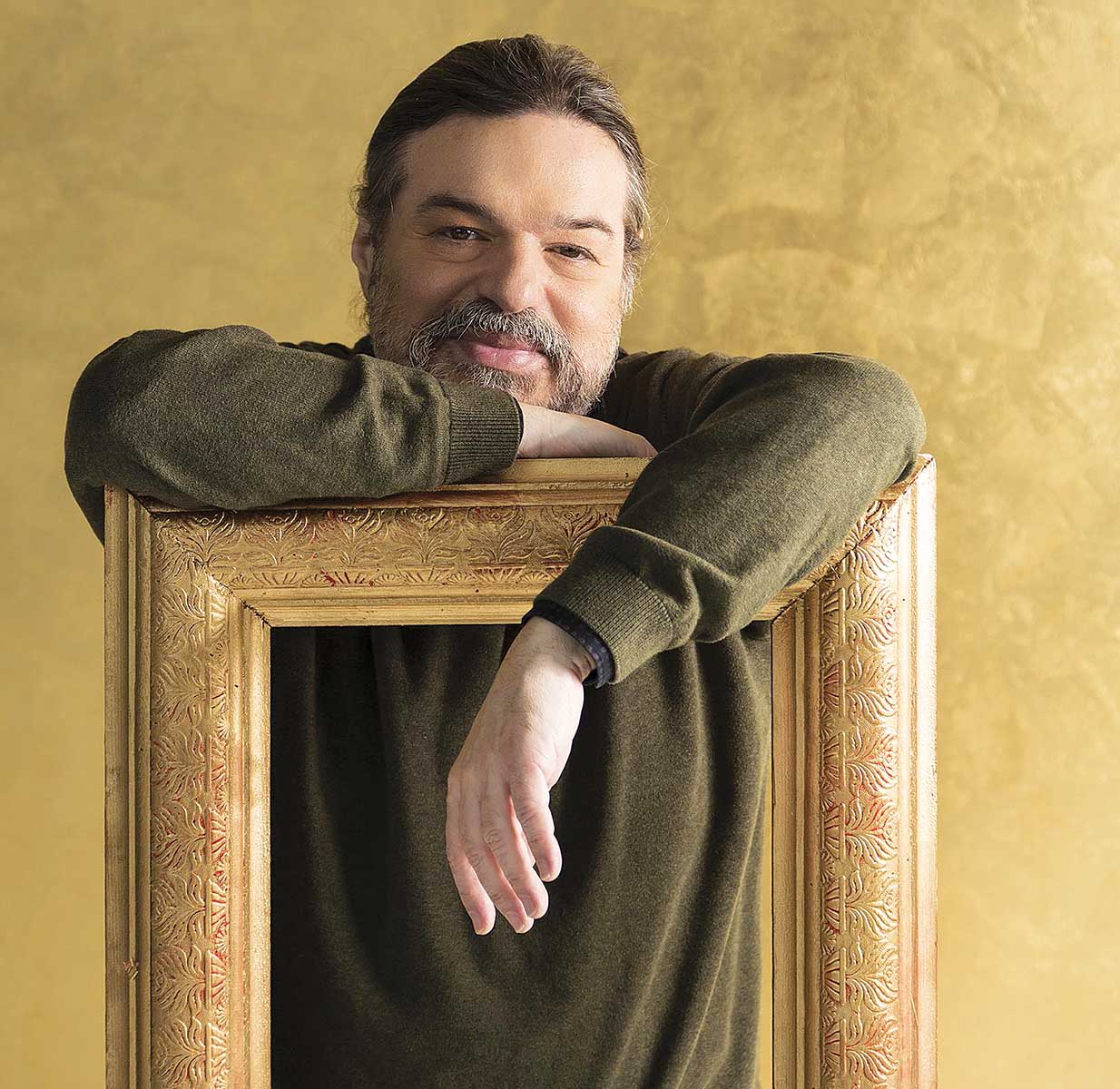Dimitris Papadimitriou
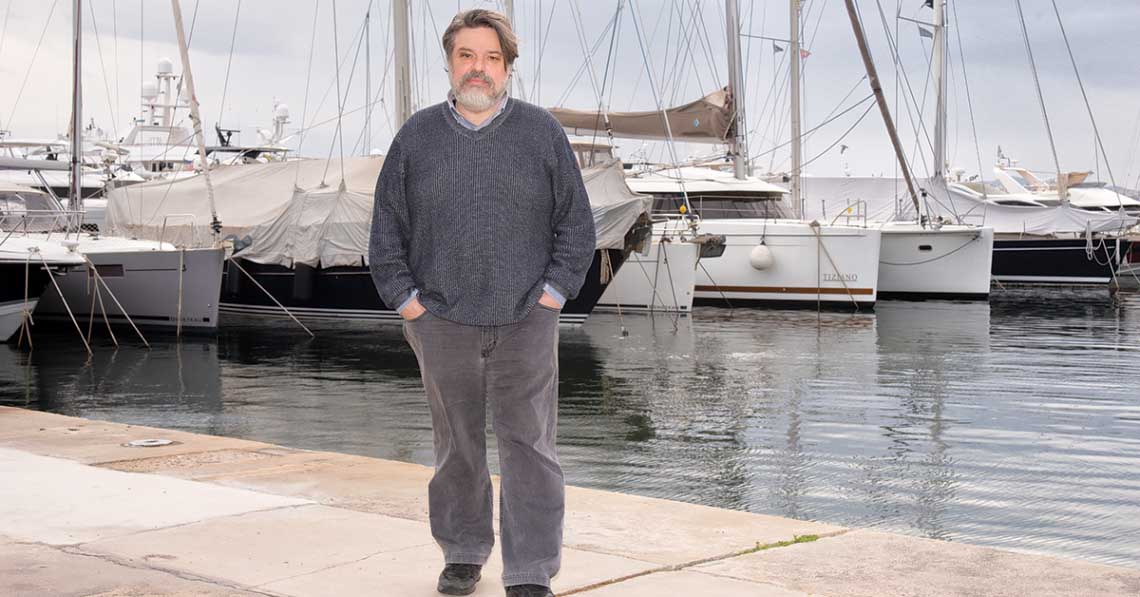
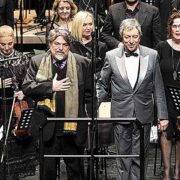
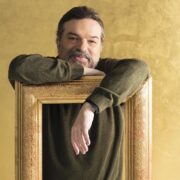
Dimitris Papadimitriou is a very popular and distinguished composer. His repertoire consists of poetry that has been put into music, folk songs and orchestral music. He is a modest and cultured man, with a long musical course, who has made his own mark by creating music for television, the cinema, for records, for orchestral music pieces, and chamber music.
He was born in Jeddah, Saudi Arabia and was raised in Alexandria, Egypt until he was seven years old. He was a student at the National Conservatory and as a Law student at the Athens University, in 1976, he composed music for various productions staged by the University’s Theatre Department.
In 1980 Manos Chatzidakis presented him as one of the six new composers of his own “Third Programme”. Michalis Kakogiannis honored him by working with him at the theatre play “Hamlet” and in the cinema movie “Cherry Orchard”. As one of the seven “fellow” composers in Boston’s Symphony Orchestra’s Tanglewood Music Center, he was a student of John Williams, of the great contemporary French composer Henri Dutilleux, of the first minimalist Steve Reich etc. He established the “Hellenic Plan” at the Onassis Cultural Center and he remains humbly devoted to promoting the works of contemporary young Greek artists.
He is a member of the Board of Directors of the Hellenic Broadcasting Corporation (ERT) and is responsible for ERA radio stations and the artistic supervision of Eurovision. He talked to us about art and philosophy, about his artistic impulses and his experimentation with the “Symphonic Miniatures”, where he turns a passive audience into an active one. «There is no Talent without a Work. There is no Work without Life. There is no Life without the People»
“Mr. Papadimitriou, the philosophical approach of art contributes to its evolution. Do you have your own philosophical approach as a creator?
Art is Philosophy through aesthetics. Philosophy is art without aesthetics – almost, that is, as philosophy uses speech, and therefore its capacity for poetry, even if in a small part. Folk art corresponds to folk wisdom, which is where folk songs get their verses.
However, I like to distinguish the concept of Philosophy, from the fact that people like to philosophize in their everyday lives. Aristophanes, Aeschylus, Euripides and Sophocles gave birth to major schools of philosophy that were ahead of their times, although they, themselves, lived as poets, rather than philosophers. Other philosophers, like Plato, lived at a time when poetry was inconsequential. Art is a much broader term that includes philosophy. It often gives birth to scientific philosophical thought.
If I was to name my philosophy, I would do it after my work. Just like the Cavafy philosophy, the Seferis philosophy, the Palamas philosophy etc. Art may reinforce it using hints and abstraction, however it (thankfully) prevents it from becoming a science. It is coherent by giving priority to the central issues and considerable attention to existential, theological and metaphysical issues, as opposed to the more materialistic ones.
While I respect those, I consider them as a part of politics. In other words, Politics is the result of applied philosophy, applied art and applied social sciences. Only great politicians can perceive this and give equal attention to each aspect. A good artist is always seeking new ideas to renew his work, and always challenges the perceived truth.
Your “Symphonic Miniatures” ask the audience to participate in the narrative. How did you come up with that?
It’s an indirect way of motivating the audience to stop being passive and become active. To find out how much they can shape the course of a concert. I have a memory of listening to my records when I was young, so I asked the audience to do the same. In a few days, I am going to open my email and read those stories.
You have mentioned that you have a “composer’s brain”. Which principles underline it?
Confessional sincerity, placing personal emotion before the collective, simpleness, awareness, integrating disposition, cultivating my creative attendance.
What concerns you as an artist nowadays?
There are two things that I am always trying to accomplish. Not getting bored with myself and constantly raising the bar. After the “Dream Peddlers”, and “The Great Provocateur” we are bringing new versions of older symphonic performances (“Winter Trip” and “The Poet’s Love”, “Masks” with the Camerata and “painting soundtracks’) as this year’s works will be rehearsed along with a big Musical, “Moby Dick”.
“Satyricon” portrays a hard truth without pretexts, at a time of debauchery in Ancient Rome. Do you think it has any correspondence to modern Greece?
Both now and then, Greece was and continues to be but an inconsequential province… What I am referring to is the corruption which is caused by imperialism and by wealth that is gathered through the exploitation of less powerful countries. This corruption is evident in the West, in Russia, in Japan and soon will be evident in China as well.
Which do you think is the most important virtue for people nowadays?
What people are lacking today is knowledge of their need for virtues.
What inspires you to compose a song?
Working and delving deeper into my own, as well as other forms of art, provides me with constant inspiration. Big works don’t need a spark, they need a blaze.
You have worked with the best Greek composers, with Manos Chatzidakis and many others. Have you ever wondered what they would say or how they would evaluate one of your compositions if they had the chance to hear it?
Of course, there is an invisible courtroom full of beloved teachers and friends. Some of them I’ve met, others I haven’t, however they all judge me harshly, but they also encourage me whenever I realize that what I am about to do concerns only a small amount of people. Some of my judges are Mamagkakis, Theodorakis, Dutilleux, Gatsos, Elitis, Seferis, Ebeirikos, Tsarouchis, Moralis, but also Aeschylus, Aristophanes, Sophocles, Shakespeare, Moliere, Baudelair, Rimbaud, and Pound. They are all both my friends and judges. Whoever goes on about their life as if they have never existed, is doomed.
Do you believe in God?
I do. Of course, it is possible to live without God. As long as you create him inside you and give him another name.
Do you have some advice for new composers?
Composers are young and ambitious. They should study, to the ultimate extent, our medium, which is music, both Greek and International. They should also have intimate knowledge of our substance, which is Life. There is no Talent without Work. There is no Work without Life. There is no Life without people. All other forms of Art can teach them the deeper cohesive substance of poetry, better than their own.


